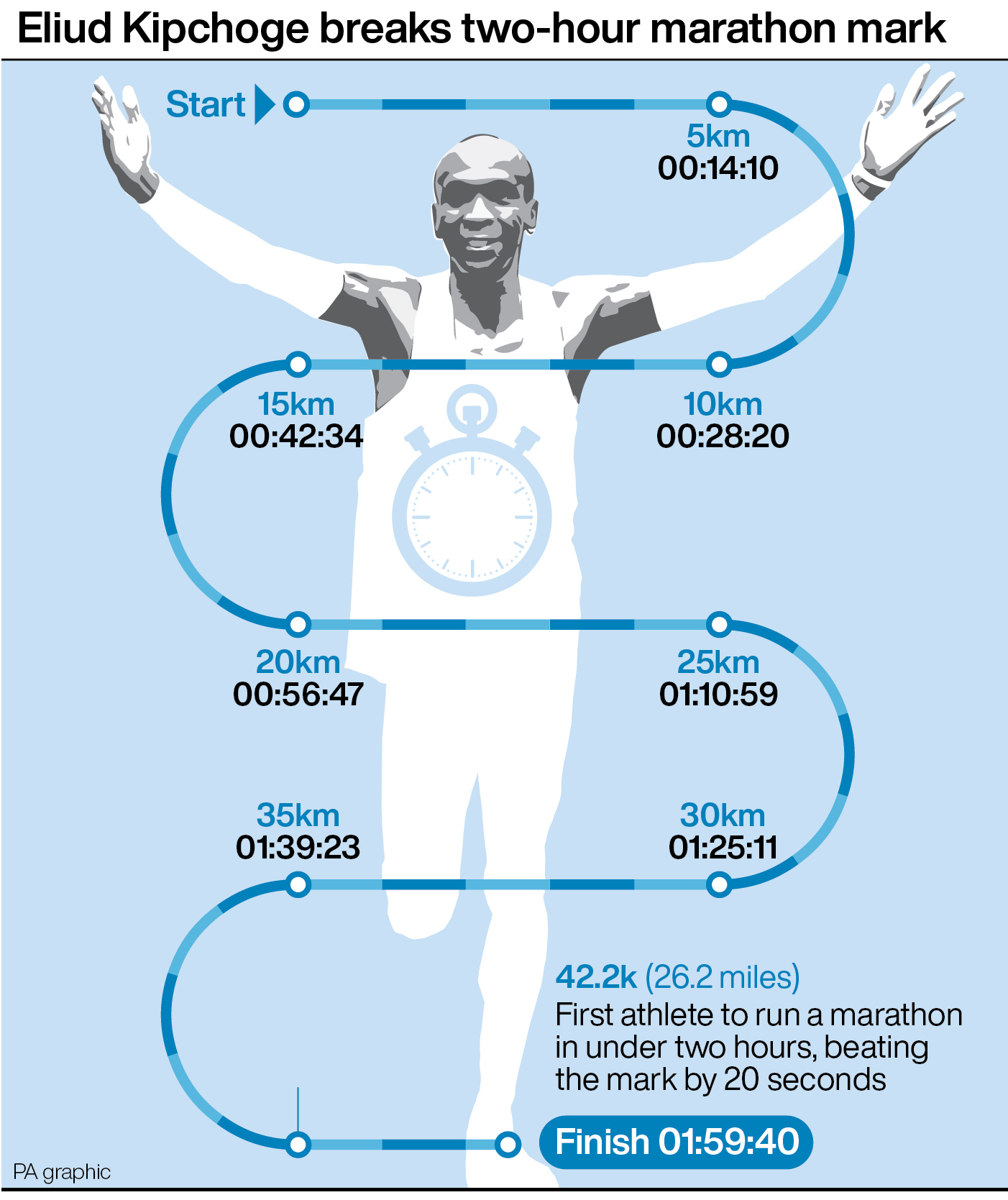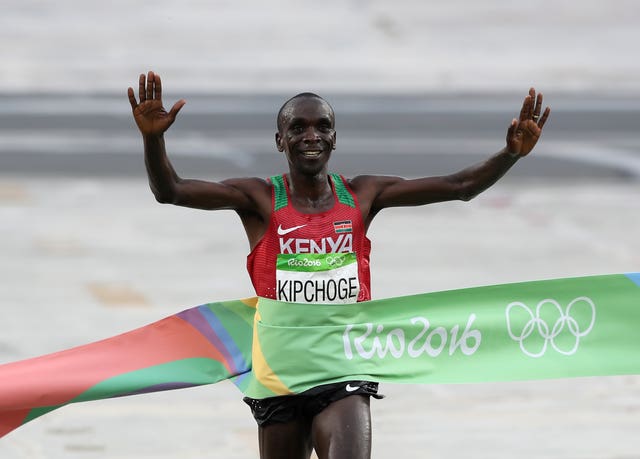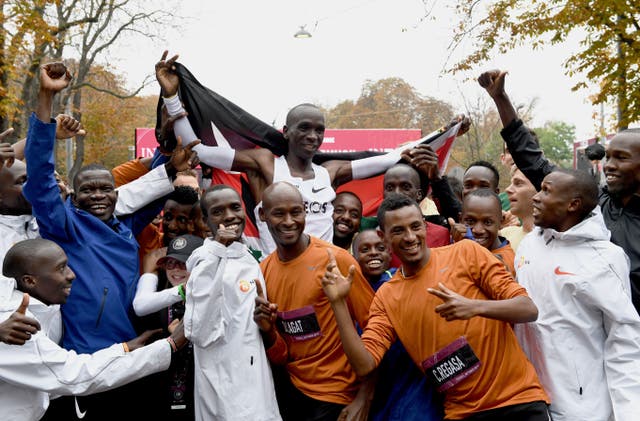Eliud Kipchoge will take his time before deciding whether to defend his Olympic title after making history by becoming the first runner to finish a marathon in under two hours.
The Kenyan, 34, clocked one hour, 59 minutes and 40 seconds around the specially tailored course in Vienna on Saturday.
Racing alone, Kipchoge was supported by 41 pacemakers, including former Olympic and world record holders, with the route optimised to avoid wind, incline and directional changes.

The milestone was not registered as an official world record but saw Kipchoge better his previous unsuccessful attempt at breaking the two-hour barrier in Monza in May 2017.
Kipchoge, who has won the past two London marathon elite races, took Olympic gold at the Rio Games.
However, he will not rush into any decision as he ponders his next challenge.
"I'm going to take three weeks' rest now and am going to concentrate on my recovery," he said in a question and answer session on his official Facebook page.

"I haven't really given a thought for any other challenge which is going to come in front of me, so it is purely on recovery now."
Asked by a fan if he would take part in Toyko 2020, Kipchoge said: "It is too early to tell."
The Kenyan added: "I've never announced that I'm no longer going to run (a marathon).
"I am going to recover and then I will decide which marathon or race to run."
Kipchoge hopes his feat will inspire others "not to believe in limits".
Goodnight Vienna pic.twitter.com/XIGb9zMcBU — Eliud Kipchoge (@EliudKipchoge) October 12, 2019
He set the marathon world record of two hours, one minute and 39 seconds at the 2018 Berlin Marathon.
Saturday's milestone came around 4.4 laps of a circuit at the Prater park in central Vienna, which saw him and the pacemakers guided by lasers on the road from a support car in front.
Kipchoge, though, is not sure whether such a feat could be achieved during a regulation event.
"I'm still celebrating breaking this barrier, so I don't want to say what will happen in the normal situation of a marathon," he said.

"This was really different because it was just racing against the time.
"You were trying all the time to stay calm and just naturally stay focused on the distance, they were all first-class pacemakers."
Kipchoge's run drew bumper crowds, while there were also joyous scenes in Kenya's capital Nairobi.
"I felt really emotional that people can just take their time to come and stand on the course and cheer me along to make history," he said.







